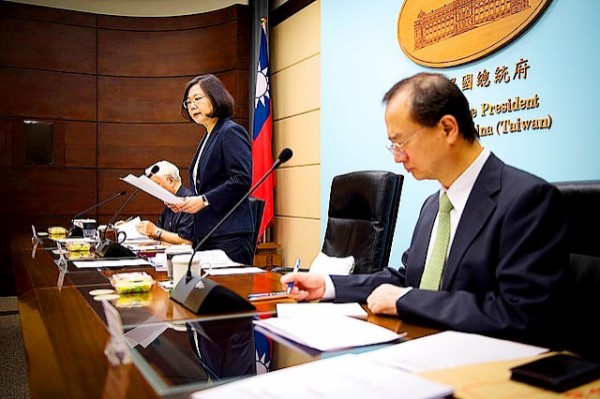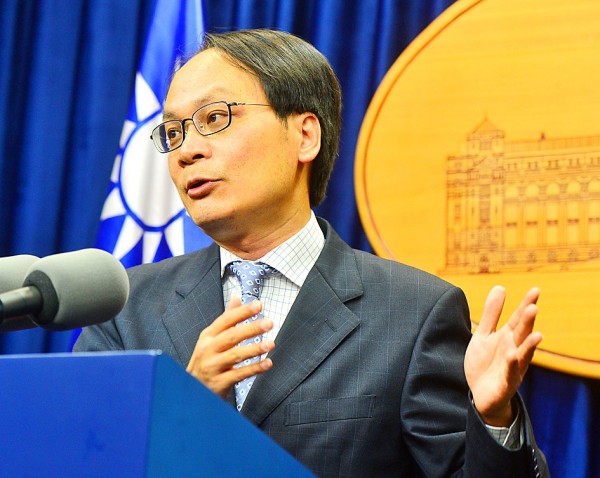《TAIPEI TIMES》 Tsai highlights targets for judicial reform

President Tsai Ing-wen, left, speaks during a meeting of the sixth preparatory committee for the National Congress on Judicial Reform held yesterday at the Presidential Office in Taipei.
PLAIN LANGUAGE: Courtroom transparency features in the plan, including directives to write legal documents and reference books in modern, comprehensible Chinese
By Jonathan Chin / Staff writer, with CNA
President Tsai Ing-wen (蔡英文) yesterday outlined the key areas of focus for judicial reform, including increasing courtroom transparency, improving the selection and discipline of judges and prosecutors, bolstering judicial neutrality and professionalism, and establishing “trials with civic participation.”
Tsai made the comments at the sixth general meeting of the preparatory committee for the National Congress on Judicial Reform held at the Presidential Office, calling the items necessary to meet the public’s expectations.
“The courtroom must become more transparent by various means, including issuing verdicts that are comprehensible to the average person. The process for selecting competent judges and prosecutors and for weeding out incompetent ones must be improved. The professionalism and political neutrality of the judiciary must be bolstered. A system for civic participation in trials must be instituted,” Tsai said.
She also instructed agencies to make detailed proposals and set a clear timetable for their implementation.
The committee has worked hard over 40 sessions since November last year to create an agenda that comprises the most important items, Tsai said.
As legal reform must be based on popular support, the proposals must be described in comprehensible language, she said.
The reforms would be unsuccessful if they are not communicated to the public, regardless of their professional merits, Tsai said.
Civic participation in trials — which is largely supported by the public — is a priority, committee deputy executive secretary Lin Feng-jeng (林?正) told a news conference after the meeting.
The Judicial Yuan is drafting a trial system that is suitable for the nation and would make “citizen judges” a reality as soon as possible, he said.
Courtroom transparency is also to be improved by, for example, writing legal documents and reference books in modern, accessible Chinese, he said.
The training and selection of judges, prosecutors and lawyers would be streamlined by implementing a single bar examination instead of holding separate certification exams for each, Lin said.
Practical knowledge is to be emphasized in the education of judges and prosecutors, he added.
Other focuses include opening prosecutorial appointments and administrations to democratic oversight, making the court structure less top-heavy, establishing specialized courts for cases that require professional knowledge and procedural changes for the Council of Grand Justices, he said.
A stronger oversight system and ridding subpar officers is needed to restore public confidence, and review procedures should be made more effective, he said.
The committee is determined to protect the rights of the disadvantaged and has established several directives to do so, such as improving evidentiary laws, making recourse better available to the wrongfully convicted, creating protections for minors’ privacy and the rights of the disadvantaged, and implementing restorative justice, Lin said.
The committee is scheduled to hold a live-streamed general meeting at the Presidential Office on Aug. 12 to summarize its conclusions, and is to publish documents beforehand, he said.
新聞來源:TAIPEI TIMES

National Congress on Judicial Reform assistant executive secretary Lin Feng-jeng speaks at a news conference yesterday at the Presidential Office Building in Taipei. Photo: Wang Yi-song, Taipei Times


















